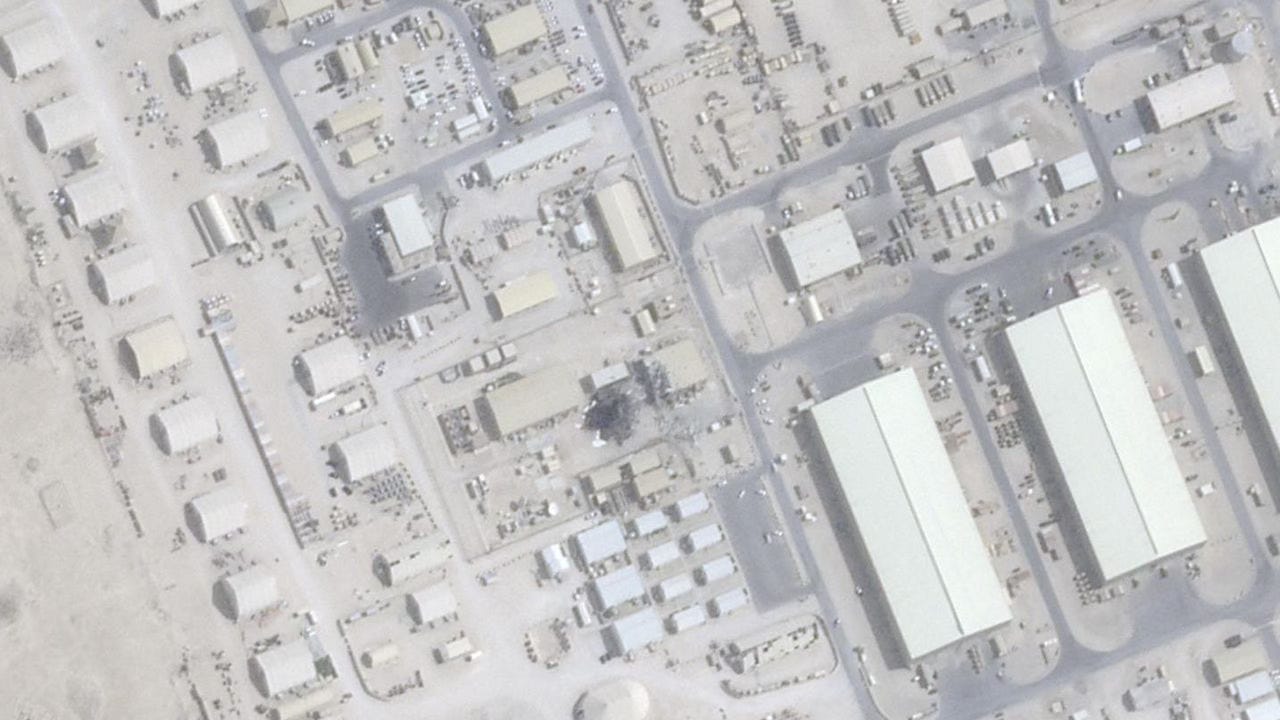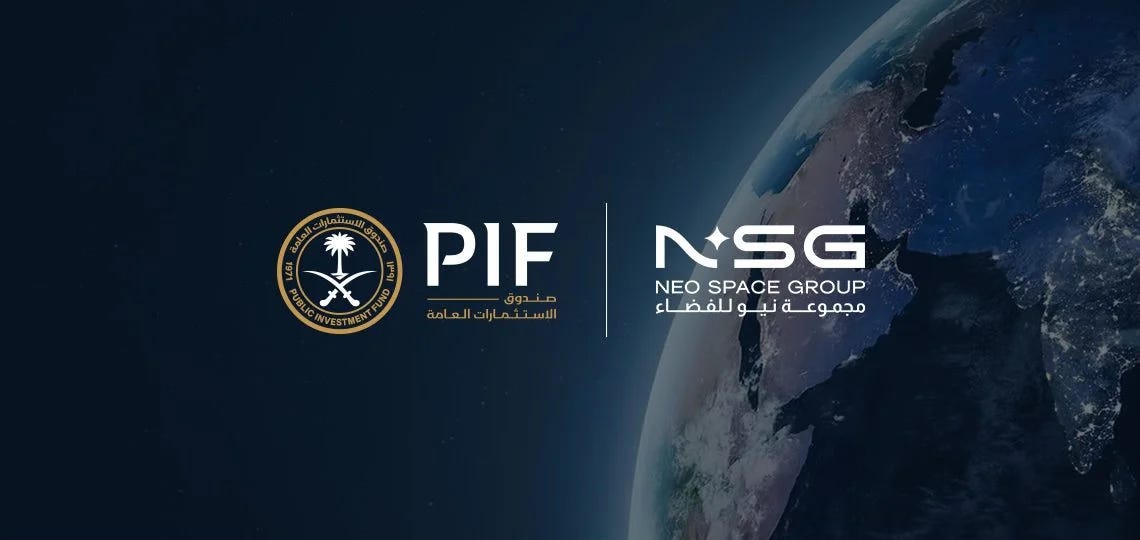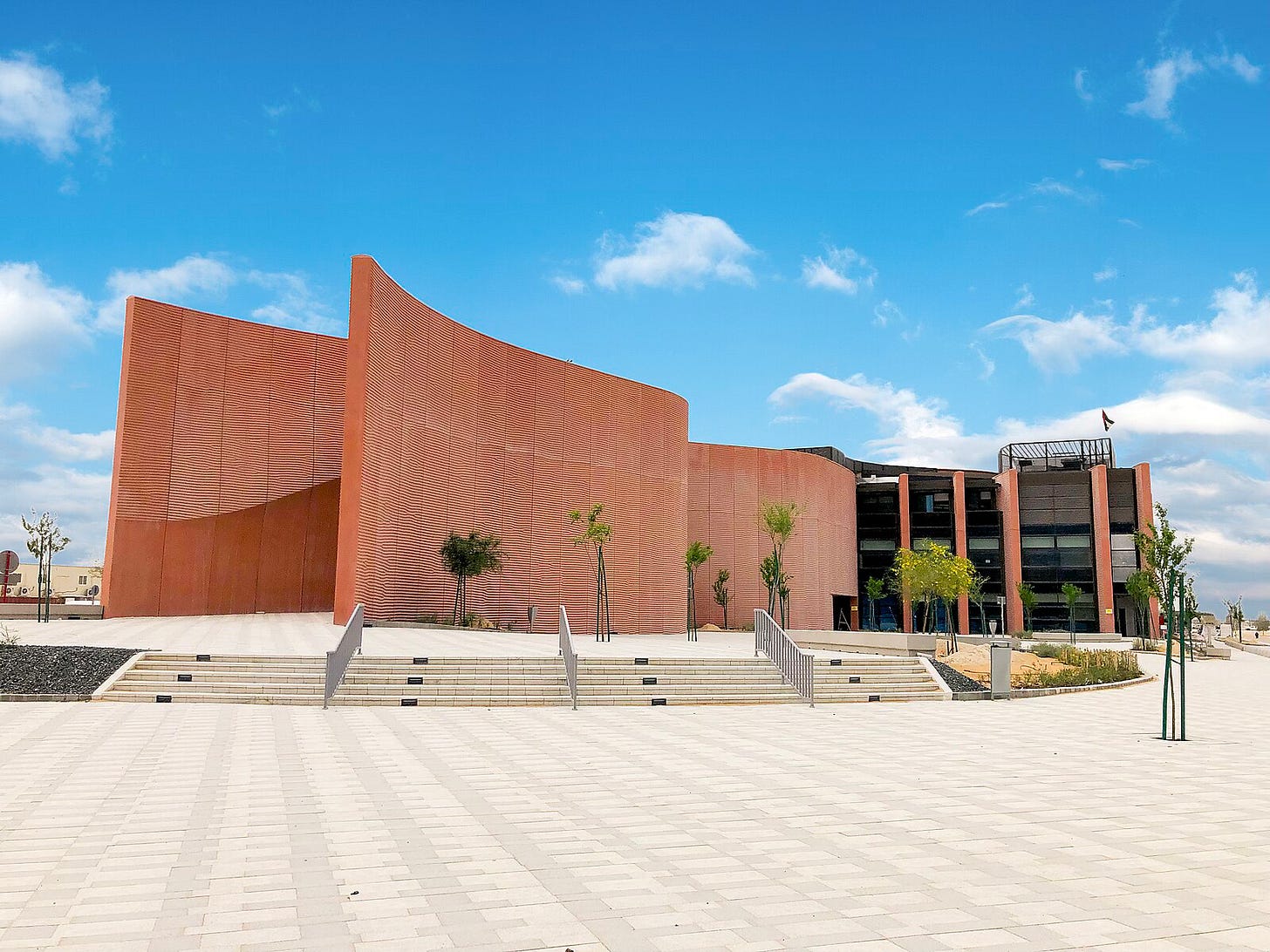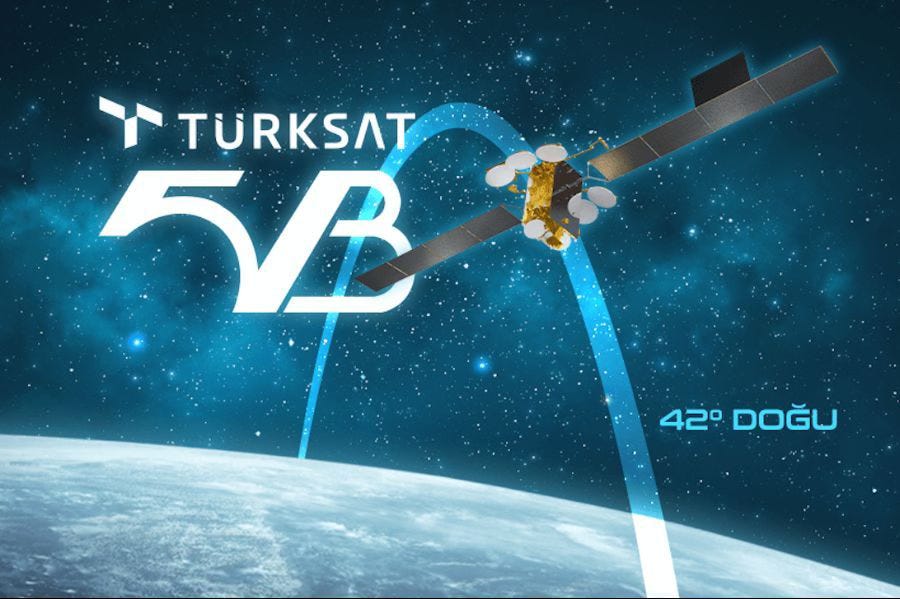Middle East Space Roundup: 7 to 13 July 2025
A summary of all the space news in the Greater Middle East over the past week, brought to you by AzurX
The following are the major space developments in the Greater Middle East region tracked by Middle East Space Monitor over the past week:
Israel Space Developments
Israel’s Dror-1 Advanced Communications Satellite Launched by SpaceX
SpaceX has successfully launched Dror-1, Israel’s most advanced communications satellite built by Israel Aerospace Industries (IAI), aboard a Falcon 9 rocket, marking a critical step in the country’s pursuit of strategic space autonomy. Developed by IAI’s Systems, Missiles and Space Group, Dror-1 is designed for a 15-year mission in geostationary orbit and incorporates modular, fully digital capabilities tailored to national communications resilience. The mission, initially kept under strict secrecy, underscores Israel’s commitment to preserving sovereign space technology and maintaining domestic satellite manufacturing expertise following earlier setbacks like the AMOS-6 loss.
Jerusalem Post Editorial: Israel’s Dror-1 Success Could be Boosted With a National Space Strategy
Following the successful launch of IAI’s Dror-1 communications satellite, the Jerusalem Post’s Editorial page writes that the satellite marks a pivotal advancement in Israel’s strategic space capabilities, offering jam-resistant, sovereign connectivity for defense, emergency response, and critical infrastructure in a post-war Middle East. Beyond its military value, Dror-1 positions Israel as a global contender in the resurging geostationary satellite market, with export potential in secure broadband, IoT, and AI-driven satellite services. The program exemplifies Israeli resilience, having advanced through pandemic lockdowns, regional conflicts, and missile attacks. If backed by a long-term National Space Strategy, Dror-1 could mark not just technological success but the beginning of a new era in Israeli space commerce and soft power projection.
Israel’s IAI Showcases Satellite & Space Capabilities In Operation Rising Lion
During Israel’s Operation Rising Lion against Iran, Israel Aerospace Industries (IAI) played a pivotal role in defending against an unprecedented multi-domain attack, with its space and satellite systems proving essential to mission success. IAI’s Ofek reconnaissance satellites delivered continuous, high-resolution imagery, while Amos communications satellites ensured secure operational connectivity. These space-based assets, alongside advanced radar, air defense systems, UAVs, and electronic warfare technologies, enabled real-time threat detection, strategic coordination, and cross-domain intelligence sharing. Operation Rising Lion marked the first integrated wartime deployment of IAI’s space-enabled capabilities, affirming Israel’s technological edge and IAI’s leadership in global aerospace and satellite defense.
Israel Launches Space Innovation Boot Camp With Israel Space Agency & CreationsVC
Israel has launched its first space innovation bootcamp in Mitzpe Ramon, a desert town now positioned as a strategic hub for space-tech development. Backed by the Israel Space Agency and U.S. investor CreationsVC, the three-month program supports startups focused on dual-use technologies for extreme environments - ranging from AI communications to 3D-printed medical devices - offering $250,000 in funding, lab access, and mentorship. Leveraging the Mars-like terrain of the nearby Ramon Crater for space simulation, the initiative aims to accelerate space-grade innovations with real-world applications in energy, healthcare, and sustainability.
Israel’s Gilat Satellite Networks Secures $22 Million in New Orders for SATCOM Terminals
Israel’s Gilat Satellite Networks has secured over $22 million in new orders from major global satellite operators, underscoring its pivotal role in advancing connectivity across GEO, MEO, and LEO constellations. Scheduled for delivery within 12 months, these contracts highlight growing demand for Gilat’s ground infrastructure and mobility solutions—particularly in the fast-expanding In-Flight Connectivity (IFC) market. The deals affirm industry confidence in Gilat’s scalable, high-performance technologies and reinforce its strategic position as a key enabler in next-generation satellite networks.
Israel’s hiSky Secures Multiple Global Orders for Its SATCOM Terminals
Israel-based satellite communications provider hiSky has secured multiple contracts in H2 2025 to deliver its Smartellite terminals and satellite network solutions to government and commercial clients worldwide. The deals, executed through tier-1 contractors, include the supply of hiSky’s compact SWaP ESA terminals, HUB MODEMs, and Network Management Systems over the next two years. This surge in orders underscores hiSky’s strategic growth and technological maturity in meeting escalating global demand for scalable, mission-critical satellite connectivity across diverse platforms and industries.
Saudi Arabia Space News
Saudi Arabia’s Neo Space Group Celebrates One Year Anniversary
In its first year of operations, Saudi Arabia’s Neo Space Group (NSG)—a Public Investment Fund (PIF) company—has rapidly emerged as a national and regional leader in commercial satellite services, expanding capabilities across satellite broadband, Earth observation, navigation, and inflight connectivity. Key milestones include the acquisition of TAQNIA ETS and the acquisition of UP42, strategic partnerships with SES, ESRI, and SuperMap, and onboarding major clients like Thai Airways and Turkish Airlines. NSG also secured regulatory approval to provide EO platform services and won industry recognition for its IFC solutions, positioning it at the forefront of Saudi Arabia’s Vision 2030 space ambitions.
Mark Dickinson, CTO of Saudi Arabia’s Neo Space Group, Interview With Via Satellite
Neo Space Group (NSG), established just a year ago by Saudi Arabia’s Public Investment Fund (PIF) to champion national satellite and space capabilities, is marking its first anniversary with strategic acquisitions and notable expansion into the in-flight connectivity (IFC) and geospatial markets. In just 12 months, NSG has positioned itself as a rising force in the global space sector, with CTO Mark Dickinson highlighting the company’s early impact and setting the stage for continued growth and international relevance in an interview with Via Satellite’s Mark Holmes.
For an interview with Martijn Blanken, Chief Executive Officer of Neo Space Group earlier this year, follow the link below.
Saudi Arabia’s Neo Space Group Completes Acquisition of UP42 Geospatial Platform
Neo Space Group (NSG), Saudi Arabia’s leading commercial space services provider and a PIF-backed entity, has completed its acquisition of Berlin-based Earth observation platform UP42 from Airbus Defence and Space. The move significantly enhances NSG’s global geospatial capabilities, expands its technological footprint, and accelerates UP42’s international growth. As a strategic asset within NSG, UP42 will continue delivering Earth observation data solutions while supporting Saudi Arabia’s Vision 2030 goals to localize high-tech capabilities and build a robust commercial space economy.
Oman Space Developments
Scrubbed Duqm-2 Suborbital Launch Still Valuable Experience for Oman’s Launch Ambitions
The Duqm-2 mission, despite a postponed launch due to a technical actuator fault, marked a major operational milestone for Oman’s Etlaq Spaceport and Stellar Kinetics’ Kea-1 suborbital vehicle program. While ignition was aborted, the mission achieved extensive data acquisition, infrastructure validation, and upskilling of local talent in launch operations. Featuring international payloads from the UK and Taiwan, Duqm-2 underscores Oman’s emerging role in the global launch ecosystem and the Etlaq Spaceport’s ambition to become a trusted hub for experimental and commercial space access in the Middle East.
Oman Launches First National Space Accelerator Program
Oman has launched its first national space accelerator under the Ministry of Transport, Communications and Information Technology, in partnership with Ankaa Space & Technologies and UK-based Exotopic, to advance its Vision 2040 goals and cultivate a competitive domestic space economy. The 15-week Oman Space Accelerators Programme will support ten Omani startups and SMEs with training in key space sectors including satellite communications, Earth observation, geospatial analytics, AI, and IoT. With a focus on institutional capacity, human capital, and commercial capability, the initiative aims to position Oman as a regional contender in the global space industry and fast-track its entry into high-value, data-driven space markets.
Oman’s MTCIT releases Directory for Private Space Sector to Foster Industry Growth
Oman’s Ministry of Transport, Communications and Information Technology has released its first Private Sector Directory Space Sector 2024, cataloguing 20 domestic companies active across the satellite and space value chain - from satellite communications and remote sensing to spaceport development. The initiative, led by the National Space Programme, aims to promote local capabilities, foster international partnerships, and boost the sector’s contribution to the digital economy under Oman Vision 2040. With the space sector currently contributing just 0.05% to GDP, the directory is positioned as a strategic tool to unlock growth, knowledge exchange, and investment in a market valued at $155 million.
Iran Space News

Iran Missile Strike on U.S. Base in Qatar Struck $15 Million Satellite Communications Terminal
Iran’s recent ballistic missile strike on Al Udeid Air Base in Qatar - home to the U.S. Central Command’s forward headquarters - destroyed a geodesic dome housing a $15 million satellite communications terminal, raising concerns about whether this was a deliberate or accidental act of space denial. Satellite imagery confirms the dome’s destruction, although broader damage to the base was minimal, thanks in part to prior evacuation and advance notice reportedly given by Iran. The attack, part of Iran’s retaliation during the Iran-Israel conflict, temporarily disrupted regional air traffic and drew conflicting narratives: while Iran’s leadership claimed a major operational blow, U.S. officials downplayed the impact, maintaining that the base remains fully operational. The incident underscores growing vulnerabilities in space-linked military infrastructure amid escalating geopolitical tensions.
Iran’s Space Achievements Under President Pezeshkian’s Administration
In its first year, Iran’s 14th administration under President Masoud Pezeshkian revitalized the national space program through successful indigenous satellite launches, reactivation of the Supreme Space Council, and increasing private sector participation. Highlights include the launch of Chamran-1 aboard the Qaem-100 solid-fuel rocket, the unveiling of Kosar and Hodhod private satellites, and the development of advanced imaging satellites such as Pars-2. Infrastructure milestones include major progress at Chabahar Spaceport and new ground stations, marking Iran’s shift toward full-spectrum space autonomy. Despite sanctions and institutional hurdles, these advances signal Iran’s strategic intent to embed space capabilities within national development and regional positioning.
UAE Space Developments
UAE Appointed to Lead Space Situational Awareness GGE by UN COPUOS
The UAE has been appointed to chair a United Nations expert group on space situational awareness (SSA) for a three-year term, underscoring its growing leadership in global space governance. Endorsed by 32 countries and multiple observers at the UN Committee on the Peaceful Uses of Outer Space (COPUOS), the UAE-led group will focus on enhancing technical mechanisms for data exchange and international coordination to mitigate orbital hazards and promote long-term space safety and sustainability.
Lockheed Martin Hosts UAE Summer Internship Cohort That Includes Lunar & Space Projects
Lockheed Martin has launched its largest-ever summer internship cohort at the Centre for Innovation and Security Solutions (CISS) in Abu Dhabi, UAE, with 44 participants collaborating on advanced aerospace projects - including space systems and lunar infrastructure. Notably, one team is developing lunar base construction techniques using 3D-printed regolith, reflecting the growing importance of in-situ resource utilization in Moon missions. Other projects include autonomous foreign debris detection and systems planning for future space and satellite applications. With backing from the UAE and a focus on sovereign capability development, this initiative underscores the UAE’s ambitions in space and Lockheed Martin’s strategic commitment to building a skilled, space-literate workforce.
Bahrain Space News
Bahrain Space Agency Submits Earth Observation Project for Space for Water Initiative
The Bahrain Space Agency (BSA), in collaboration with the United Nations Office for Outer Space Affairs (UNOOSA) and the Prince Sultan bin Abdulaziz International Prize for Water, has submitted a project under the "Space for Water" initiative aimed at identifying shallow groundwater potential using satellite technologies. Led by Aisha Al Jowder and supported by experts from Brazil and the UK, the project applies remote sensing methodologies to measure soil moisture and land elevation - demonstrating how space-based Earth observation can deliver practical solutions for water-scarce, geographically small countries. The initiative underscores BSA’s growing role in leveraging space data for environmental resilience and international cooperation.
Bahrain Space Agency’s Aysha Al Haram Appointed Co-Chair of SSPI-WISE East
Aysha Al Haram, Chief of the Satellite Design Department at the Bahrain Space Agency, has been appointed co-chair of the newly formed SSPI-WISE East regional group under the international Space & Satellite Professionals International (SSPI) initiative, Women in Space Engagement. As the first Arab woman to hold a senior leadership role in the organization, her appointment underscores both Bahrain’s rising influence in the global space sector and the growing importance of emerging markets. Al Haram aims to drive STEM education, regional collaboration, and gender inclusion across the Middle East and Asia, further reinforcing BSA’s strategic role in space innovation and leadership.
Syria Space Developments
Syria Gets Satellite Internet Service Via Türkiye’s Turksat-5B Satellite
Turksat, Türkiye’s sole satellite operator, has launched high-capacity Ka-Band satellite internet access in Syria via the Turksat-5B satellite, marking a strategic expansion of digital infrastructure in underserved regions. Following high-level negotiations in Damascus, key Syrian locations have been equipped with Turksat terminals to enable uninterrupted digital public services, including internet, broadcasting, e-government, and emergency communications. This move not only supports Syria’s digital transformation but also signals Türkiye’s growing influence in regional connectivity through satellite technology.
EU Activates Copernicus Emergency Satellite Support for Syria’s Wildfire Response
The European Union has activated its Copernicus Emergency Mapping Service to aid wildfire response efforts in Syria’s Latakia region, leveraging satellite imagery to support crisis management amid worsening humanitarian conditions. The Copernicus system, which aggregates and analyzes satellite data for disaster and environmental monitoring, is providing actionable intelligence to local authorities, reinforcing the EU’s use of space-based assets in humanitarian crises.
Other Regional Space News
Türkiye Targets 2029 for Launch of Indigenously-Built TÜRKSAT-7A Communication Satellite
Türkiye marked a major milestone in its space ambitions as TÜRKSAT-6A - its first domestically developed communications satellite - completed its first year in orbit, now delivering services across a broad region and reaching 65% of the global population. At CABSAT 2025, Türkiye signed its first international export agreement for satellite capacity via TÜRKSAT-6A, expanding its presence in South and West Asia. Building on this momentum, the government has officially launched the TÜRKSAT-7A project, targeted for 2029, to replace the aging TÜRKSAT-3A and enhance national capabilities with flexible payloads, high data throughput, and strategic orbital-frequency protections - cementing Türkiye’s role as a rising player in global satellite communications.
Elon Musk: Starlink Now Operational in Qatar
Starlink, SpaceX’s satellite internet service, has officially launched in Qatar, bringing high-speed, reliable connectivity to both urban and previously underserved areas. Announced by Elon Musk, the rollout positions Qatar as a regional frontrunner in satellite-based digital infrastructure. The move complements Qatar Airways’ earlier adoption of Starlink for in-flight ultra-fast Wi-Fi, underscoring the country’s commitment to technological leadership across sectors.
Morocco’s Acquisition of Israeli SAR Satellites Signals Shift in Security Doctrine
Morocco is significantly advancing its satellite surveillance capabilities with the planned acquisition of Ofek 13 synthetic aperture radar (SAR) satellites, marking a strategic evolution from its current Mohammed VI-A and VI-B optical Earth observation systems. These new satellites, operating in low-Earth orbit, will provide all-weather, day-and-night border monitoring, enhancing Morocco's intelligence posture along sensitive regions such as the Sahel and the Algerian frontier. This shift from optical to radar satellites reflects a broader national doctrine focused on deterrence, cognitive superiority, and security autonomy. By partnering in the development of high-resolution SAR systems, Morocco is positioning itself as both a regional intelligence leader and an integrated player in the Western geospatial defense architecture.
Aerospace Engineering Student From Tunisia Selected for 2029 Suborbital Mission
Salsabil Houij, an aerospace engineering candidate from Tunisia, has been selected for a 2029 suborbital mission, marking a significant step for Arab representation in human spaceflight. The suborbital altitude mission - reaching 300 km and lasting five hours, including three in microgravity - will be conducted aboard a hybrid spaceplane. Houij, who studied in Tunisia and Italy, will undergo intensive multi-year training before final confirmation. Her participation reflects the growing globalisation of astronaut programs and the rising presence of North African talent in the commercial space sector.
Maxar Intelligence Signs $204.7 Million Contracts With Middle East & African Governments for Satellite Imagery
Maxar Intelligence has secured three new multi-year contracts worth $204.7 million to expand sovereign space-based intelligence capabilities across the Middle East and Africa. These agreements with unidentified governments in both regions provide direct access to Maxar’s satellite constellation, high-resolution imagery, 3D terrain data, and advanced geospatial analytics - including AI-powered change detection - supporting real-time C5ISR operations and predictive mission planning. The deals reinforce Maxar’s longstanding regional presence and highlight the strategic prioritization of indigenous satellite and space intelligence infrastructure in digitally transforming defense and security operations across MEA.
Be sure to catch up with space activities in the region in the next edition of Middle East Space Monitor’s space roundup!
Middle East Space Monitor is an official Media Partner of the Space Defense and Security Summit and World Space Business Week 2025, hosted by Novaspace in Paris













